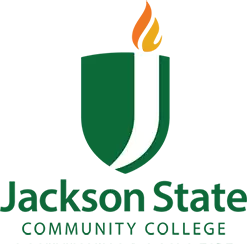The Radiologic Technology Program consists of traditional college classes in conjunction with the performance of clinical education assignments. Throughout the six consecutive semester program (24 months), students will spend time in the college classroom and the clinical affiliate radiology department (not to exceed 40 hours per week combined), learning theory and practicing application in a real-world environment.
Academic Courses
Professional courses (those listed in the college catalog/schedule with RADT prefix) are designed to provide the student with a background necessary for a successful career in Radiologic Technology and are conducted on the college’s main campus location during traditional daytime hours. To date, no evening, weekend, or substantial online courses are offered for this major. Only students who have been officially selected and enrolled in the radiologic technology program are eligible to register for the RADT courses. At the end of each academic term, enrolled RADT students must maintain a grade of 80% in all professional courses in order to continue in the program. Upon successful completion of professional and clinical requirements, the graduate receives an Associate of Applied Science degree (total of 75 credit hours including general education requirements and clinical education).
Clinical Education
In addition to academic courses offered on the college campus, Radiologic Technology students participate in numerous hours of clinical education assignments at one of the four associated clinical hospitals. Clinical education provides the student with a supervised, hands-on experience within a radiology department working with patients and modern technology. The following hospitals are affiliated with the JSCC Radiologic Technology program and their maximum numbers of annual enrollment listed:
| Baptist Memorial Hospital – Union City, TN | 6 students |
| WTH Dyersburg Hospital - Dyersburg, TN | 6 students |
| Henry County Medical Center (HCMC) – Paris, TN | 6 students |
| Magnolia Regional Health Center (MRHC) - Corinth, MS | 2 students |
| WTH North Campus (part of WTH JMCGH) - Jackson, TN | 2 students |
| WTH Jackson-Madison County General Hospital (JMCGH) - Jackson, TN |
13 students |
Students select their preference of home-base clinical site while completing the program application. Students are interviewed by the RADT Program Admissions Committee. Once admitted to the program, students will perform the majority of clinical duties at the home-base hospital, but will perform 12 weeks of rotations at other facilities. While the program is approved to accept the numbers of students at each facility as listed, in order to comply with supervision requirements, class size is typically smaller. Over the past few years the average class size is around 20-24 students.
Students participate in seven days of clinical observation during the first semester of the program (lab for RADT 1315). Beginning in the second semester and continuing throughout, students will register for clinical education courses and receive grades accordingly. Full days of clinical are required and may be scheduled during the hours of 5:30am until 9:30pm. Minimal weekend rotations will only be scheduled the 3rd semester of the program (4 Saturday and 4 Sunday shifts). There are occasions when students will be assigned clinical education duties while the college campus is open, but traditional academic classes are not in session.
The following table lists the program’s required clinical contact hours by week and semester:
| First Semester | 8 hours/week for seven days only |
| Second Semester | 16 hours/week (15 weeks) |
| Third Semester | 32 hours/week (13 weeks) |
| Fourth-Sixth Semesters |
24 hours/week (hours may be less for rotations outside of home-base clinical facilities) (16 week for 4th and 5th semesters, 14 week for 6th semester) |

